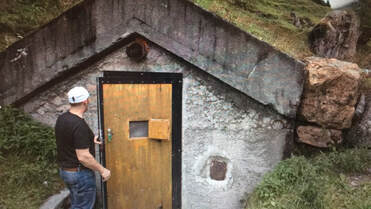|
Some define them as artisanal cheeses made with raw milk and without the use of selected starters. In recent years, even small-scale, raw milk productions are increasingly employing industrial starters selected by a few large multinationals in their manufacturing processes, which undoubtedly “help” to manage cheesemaking more safely but, on the other hand, result in a trivialization of the cheese.
Milks of the highest quality too often end up being processed with the use of the now famous “sachets” of starter cultures. The result is the general levelling of the playing field in terms of cheese quality and characteristics. However in Switzerland many cheesemakers are working without selected starters but producing their own milk-graft or whey-graft, in order to preserve their microbial biodiversity and offer consumers an authentic expression of their areas of origin. The idea of a natural cheese is positive however it comes alongside other important factors. There is not only milk, rennet and salt, but the work of a milk producer who is attentive to animal welfare, respectful of the environment, and who protects biodiversity, including the invisible biodiversity formed by thousands of different microorganisms from the pasture to the dairy. Producing cheeses without industrial ferments is possible, and desirable, if we are to avoid a general homogenization of the cheese panorama.
0 Comments
Slow Food Cheese 2023 is on this week in the village of Bra, Italy. https://cheese.slowfood.it/en/
This years theme is The taste of the meadows. In the permanent meadows and mountain pastures, hundreds of different plant species coexist—a true feast for cows, goats, and sheep that consume them, transforming them into energy and producing high-quality milk. It is also a precious bounty for pollinating insects. This is especially true of Alpine pastures which are grazed in the summer months in Switzerland, and we differentiate further between "mountain pastures" and "alpine pastures" in that Alpine are grazed only in summer and have a much greater diversity of plants. In Switzerland we also differentiate between cheese that comes from summer Alpine grazed animals - where the cheese is also made up in the same area that the animals are grazing. Whereas milk that is transported down to a nearby village or town will not give cheese with the summer alpage definition. Embracing the diversity of plant species available to be grazed ! |
|
Slow Food Cheese: Bra, Italy September 15—18 2023 |
Featured in NEWS
|
